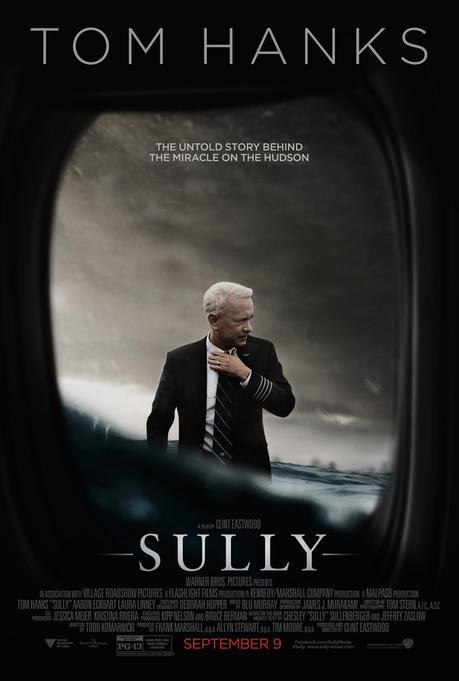
Late in Clint Eastwood's new film "Sully", a hearing is being conducted to ascertain whether an emergency water landing carried out by the titular pilot Chesley "Sully" Sullenberger could have been avoided. Using flight simulation technology, the inquiry board demonstrates that a safer landing at a nearby airport was possible. Sully argues that the simulation is faulty, as it removes the vital "human factor" from the high-stress situation. Similarly for Eastwood's depiction of this true story, the humanity involved before, during and after the unbelievable events prove to be essential to the film's questionable success.
Tom Hanks plays the lead role of Sully, a longtime pilot for US Airways with a wealth of experience. One day however, all his training will be put to the ultimate test, when a freak incident causes a routine flight to malfunction. While en route from LaGuardia Airport in New York to Charlotte Douglas Airport in North Carolina, his plane hits a flock of geese, which disables both engines. With few options for a safe landing, he decides to trust his instincts and directs the plane towards a risky landing in the Hudson river. Miraculously, he pulls it off without any casualties. Sully is soon declared a hero by the public and the media alike. But with the significant financial losses incurred and pressure from the insurance company, an investigation begins to unfold to determine whether Sully should take the blame for irresponsible behavior.
Part delicate character study, part inspiring courtroom drama, "Sully" is a film often at odds with itself. Despite an intense opening scene depicting a horrific nightmare of a plane crash, Eastwood's direction is surprisingly restrained. For Tom Hanks, the approach comes as a blessing, allowing him to once again shed his former "aw shucks" persona for yet another deeply grounded portrayal. In what will surely place him in the Best Actor conversation, Hanks' performance is truly the film's anchor. Despite the glaring facial transformation, he manages to fully inhabit the role.
Unfortunately, the restraint hardly benefits the film otherwise. The predictable dialog is delivered with such monotonous detachment that the film sometimes feels amateurish. And though the last act is considerably more engaging, the transition from Sully to the ultimate courtroom scenes lacks the tension that Hanks so effortlessly conveys. For a film that stresses the significance of human emotions in crisis situations, there's a disappointing lack of genuine human feeling in much of the acting.
Indeed, while Hanks gets to explore great the psychological depths associated with PTSD and the vulnerability of public scrutiny, the other main characters serve mainly as props for his journey. Laura Linney for example, is stuck with the laughably stereotypical "supporting wife" role, while Aaron Eckhart barely gets any showcase scenes despite being Sully's co-pilot who is also on trial.
By the time Hanks delivers what would likely be his Oscar clip, one gets the distinct sense of a film that doesn't know what it wants to be. In this climactic scene, he explains that it was the combined team effort of the flight crew, passengers, first responders and all of "New York's finest" which allowed for the plane's successful landing. But the dynamic ensemble drama he describes is far removed from the myopic biopic Eastwood delivers. Many may give Eastwood kudos for being able to deliver decent film at his age, with possible Best Picture and Best Director noms on the horizon. But for this fan of the prolific actor-director, "Sully" feels too much like Eastwood on autopilot, rather than taking full control of this fascinating true story.
